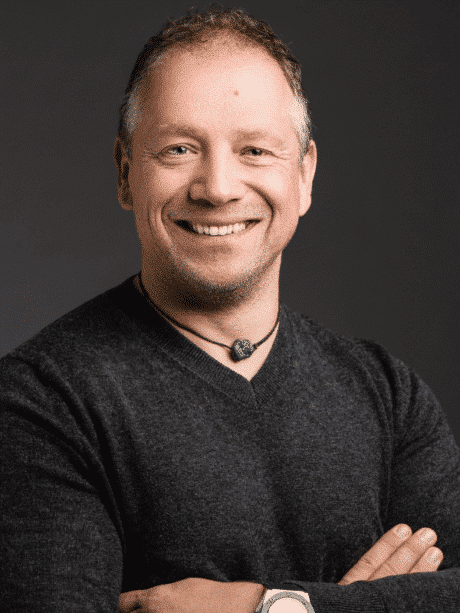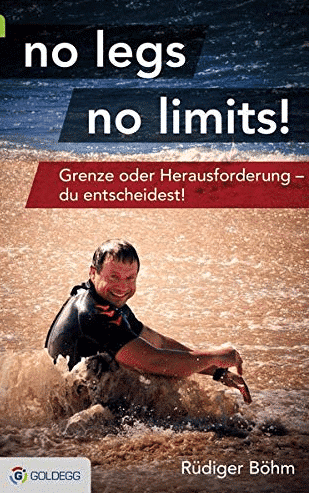


Rüdiger Böhm
Rüdiger Böhm is pure motivation. The keynote speaker, coach and author impresses with his extraordinary life story. He knows what it means when everything in life changes within a single second.

About Rüdiger Böhm
“Things happen! What matters is what you make of it!”
As a top athlete, he lost both legs and almost his life in a tragic traffic accident one day before his 27th birthday. What followed were 30 days in a coma, 30 weeks in the hospital and a months-long struggle back to a new life without legs. With a strong will, a lot of courage and clear decisions, he mastered this nightmare and thus developed into a successful expert in crisis management.
Changes bring motion into life – they push the boundaries and always offer a chance for personal development!
Today, he is once again a fun-loving top athlete who loves extreme challenges and overcomes his limits every day. As the only soccer coach without legs with the highest UEFA coaching license in the world, he trained and supported many of today’s Bundesliga professionals on their way to professional sport. He knows what it takes to shape successful teams, motivate them and lead them to peak performance. What applies to top-class sports also applies in the same form to companies and the economy!
In his inspiring talks and seminars, the top speaker skillfully combines his expertise in sports, business, healthcare and coaching with his own life story. In doing so, he touches his audience and serves as a role model for many. Clear, genuine and passionate, the expert for motivation and change gets to the heart of the matter. With a special blend of humor and depth, Böhm encourages people to never give up and to overcome their own limits every day anew for personal and corporate success.
Specialist Subjects
John J. Tugman
"Upon completing the courses with Dr. Luftman I was promoted to Director of the Information Technology Support Directorate where I managed 5 divisions staffed with 142 IT professionals providing the full suite of IT applications and support services and was responsible for $100M+ budget."
Vice President, EPS Network Solutions
References
"Enormous what he has achieved with us. 1000 thanks for that!"
"I knew Rüdiger was good, but he took us to a new level in a ½ days workshop. An authentic person with a wonderful gift to motivate and focus people on goals. Enormous what he achieved with us. 1000 thanks for that!"

